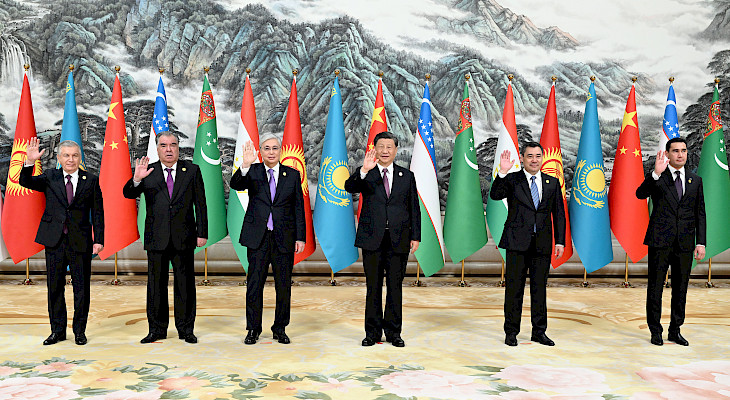New Year's in Central Asia and the Caucasus
The fallout of the Trump presidency on the region's balances, the return of opportunities for Gazprom and Rosatom in Uzbekistan and Kazakhstan, the stalemate in negotiations between Armenia and Azerbaijan, the political clash in Georgia: analysts' predictions on the most important issues of 2025 in Central Asia and the Caucasus.
Astana (AsiaNews) - A group of journalists from the editorial group Radio Svobodnaja Evropa / Radio Azattyk tried to look into the future of the year that has just begun, exchanging opinions and forecasts.
Some topics are part of the scenarios shared at a much broader level, such as the conflict in Ukraine that has now become a global clash between the West and a bloc of countries forming around Russia, or the increasing growth of populist movements that increase the strength of authoritarian leaders as democratic institutions are progressively broken down.
Everyone obviously awaits the moves of the new/old US president Donald Trump, from the dynamics of transatlantic trade to policy in the Balkans, the Middle East and Asia.
Vitalij Portnikov reiterates scepticism about the end of the war in Ukraine, even if one side were to achieve some form of victory, an outcome currently more likely for Moscow than for Kiev, and from here the hopes for a positive role for Trump are pegged.
Putin's possible slowdown, however, may be more related to the uncertainties of the Russian economy than to international agreements. For Ukraine, the key factor concerns the security guarantees that Europe and the West will be able to offer, and the ability of the population not to be too influenced by Russian interference in Ukrainian society.
With regard to Central Asia, expert Chris Rickleton predicts a further growth of authoritarian regimes, accompanied by a return of Russian influence in the region.
The energy companies Gazprom and Rosatom are achieving important results in Uzbekistan, boosting Russian gas exports, and they are also busy building nuclear power plants in Uzbekistan and Kazakhstan, after the October referendum that gave the green light to an operation from which it will be difficult to keep the Russians away.
It will have to be seen, however, how much the aspirations of the Central Asian peoples will be felt in the de-colonisation of local languages, and not only that, with respect to the Russian-Soviet legacy.
At the same time, China continues to strengthen its friendship with the Central Asian countries, with the help of quiet diplomacy and the many billions in investments, especially in transport and renewable energy in the region.
The regimes in power are already very authoritarian, particularly those in Turkmenistan and Tajikistan, but also in Kazakhstan, Kyrgyzstan and Uzbekistan, journalists and critical voices are no longer able to be truly protagonists, with increasingly restrictive laws, arrests and convictions, and an ever-increasing reduction of freedoms and rights.
Joshua Kuchera, a journalist living in Tbilisi, observes that in the past year there were hopes for a final pacification between Armenia and Azerbaijan, but the agreements are still pending and it is not known when and if they will be signed, mainly due to resistance in Baku, but also with widespread discontent in Yerevan.
The attention of the Caucasus has therefore focused on Georgia, with an ongoing crisis that does not promise a very peaceful year, amidst continuous street protests and forms of police repression not seen in these parts since Soviet times.
The only thing that can be said is that by the end of 2025 Georgia will be very different from what it is today, one way or another, in the rift between Russia and Europe.
Other interventions by the editors and experts also address Belarus, where the totalitarianism of Aleksandr Lukašenko intends to reintroduce itself in even more radical forms with the unopposed re-election next 26 January.
Important scenarios concern Iran, where signs of ‘moderation’ are expected from the new president Masud Pezeshkyan, or Hungary, where the initiatives of Péter Magyar, Viktor Orban's former loyalist, who has founded the new movement Tisza - Party of Respect and Freedom, winning around twenty seats in the European Parliament, also considering the Magyars' historical-cultural “kinship” with the Central Asians, could prove surprising.
Finally, signals are expected from the EU of a real ‘European solidity’, not only to contain migratory flows or to limit the pro-Russian influences of Hungary's Orban and Slovakia's Fico, but to really offer an image and a capacity to relate in all fields to Asians, taking Eurasia away from Putin's control.







.png)










